We are committed to offering our customers the finest ingredients which have been responsibly and ethically sourced, working with only approved suppliers.
Discover more about our botanicals and why they enhance your gin cocktail experience!
Hibiscus Flower
Hibiscus flower is known for its bright, ruby red colour when infused and for being a great source of Vitamin C.
It comes from a group of flowering plants that are native to the tropical and subtropical regions of the world.
Some say that hibiscus flower resembles pomegranate or cranberry in flavour.
Hibiscus flower releases a tart, cranberry-like flavour and a deep ruby red colour in your glass.
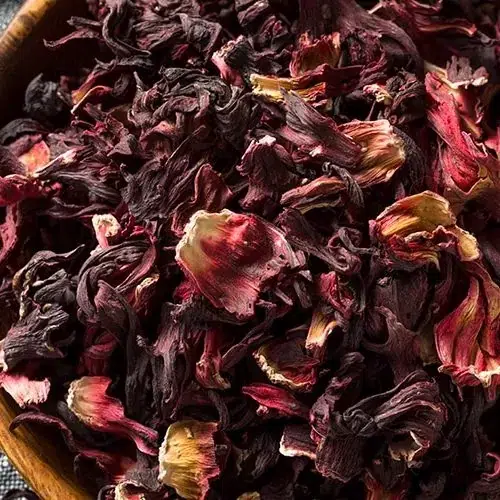
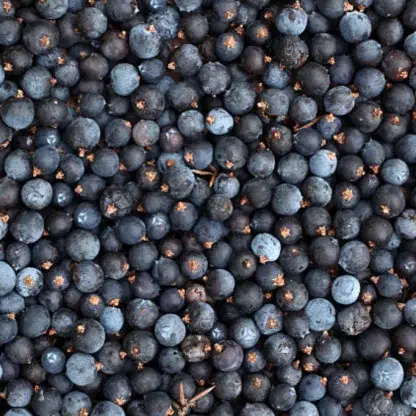
Juniper Berries
Juniper berries first made their appearance around 250 million years ago and are an essential ingredient of gin today.
The aroma and flavour of juniper berries are warming, resinous and clean. They have a sharp, piney, tart like taste along with a hint of citrus.
The flavour of juniper berries is most commonly associated with pine. They have a sharp hint of bitterness and can be described as resinous with mild citrus notes.
Juniper berries are an important spice in several European food cultures. They are especially widely used in Alpine countries where the berries are abundant, despite the fact that the highest quality berries come from the southern part of the continent.
To release their full flavour, it is recommended that juniper berries are crushed.
Chilli Rings
Chillies, originally from South America, are now cultivated in many parts of the world.
Chilli rings not only add colour to your glass but give your drink a very refreshing, spicy character.
They deliver a very hot and pungent flavour to your gin and tonic or cocktail-based drink.
Grapefruit peel
Dried grapefruit peel brings a whole new dimension to your gin and tonic or cocktail-based drink.
It livens it up and contains a sweet taste that can cut through other flavours.
Ginger root
Ginger root contains is hot, pungent and contains a spicy, intense aromatic flavour.
It gives your gin and tonic a bright, cooling and slightly peppery flavour, similar to cardamom and chilli rings.
The root of the ginger plant has a long history as both a culinary spice and as a medicinal ingredient.
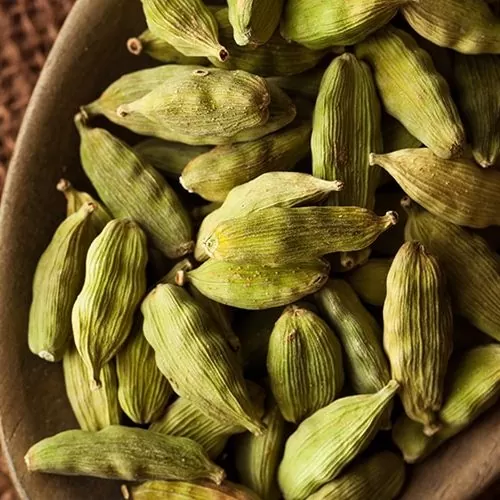
Cardamom pods (green)
Native to southern India, but also cultivated in Guatemala, Indo China and Tanzania, cardamom is a unique spice and is ranked the third most expensive spice in the world.
Cardamom seeds come from a plant belonging to the ginger family, and are contained in small pods.
As with many gin botanicals, cardamom is also valued for its medicinal qualities ahead of its taste.
Green cardamom provides gin with a distinctive sweet-spicy flavour that works incredibly well with juniper berries.
Star anise
Star anise is a distinctive-looking spice that resembles a small star. It has a strong aniseed flavour, with a liquorice-like aroma.
It is very aromatic and gives a sweet, menthol kick to your gin and tonic. Star anise is also used in the production of various anise liqueurs and spirits including Galliano, Herbsaint, Jägermeister, absinthe, sambuca, pastis, ouzo, mastika and many more.
It is an incredibly versatile spice and works well in both sweet and savoury contexts.
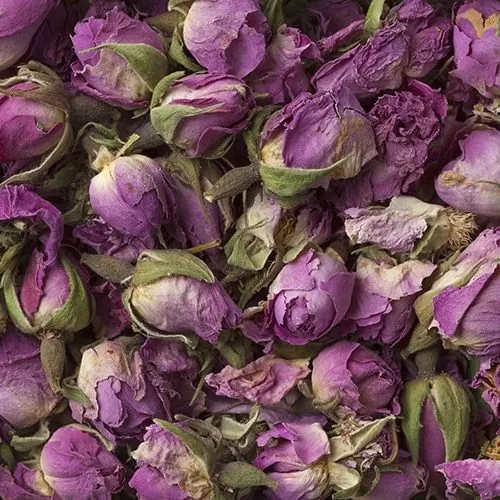
Rosebuds
Rosebuds are a great cocktail garnish with a beautiful flowery aroma and light, sweet taste.
Harvested and dried just before maturity, when their perfume is at its best, pink rosebuds are ideal for creating infused sugar syrups that make for exotic and luxurious cocktails and gin and tonics.
As well as creating cocktails, rosebuds can be used to create infused honey or herbal teas.
Rose petals contain many rare and precious elements and mineral compounds, flavonoids, essential oils, carotene and vitamins.
Rosebuds add an amazing rose fragrance to your cocktail and work as a very beautiful, elegant and aromatic decoration.
Dehydrated blood orange slices
Dried orange slices are exceptionally sweet and add a zesty, aromatic flavour to your gin and tonic or cocktail-based drink.
Dried blood slices can be used for cocktails, teas or infusions, sangria, carbonated drinks, detox waters, desserts, recipes, decorations, wreath-making and much more!
Orange slices combine very well with most cocktails, for example, rum, gin, vodka, vermouth or sangria or Aperol spritz.
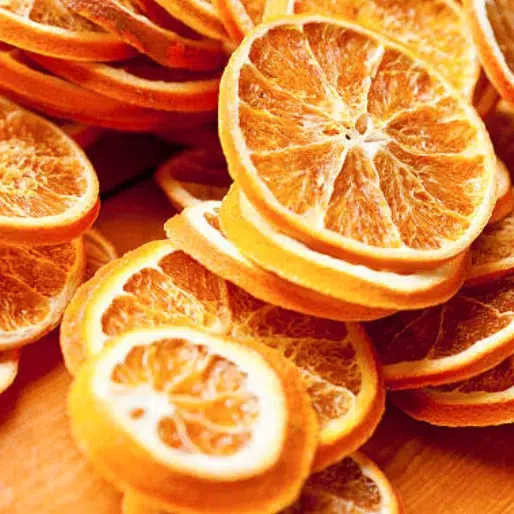
Recent Posts
- Hello world!
- Planting Tree for Every Product Sold We Plant Trees
- Nulla pellentesque enim ac aliquet adipiscing pretium. Et, integer metus tellus vitae in arcu nunc lectus pharetra.
- Amet amet, sit sed feugiat in sed curabitur. Pellentesque nulla pellentesque enim ac aliquet adipiscing pretium.
- Massa est urna, amet erat tincidunt. Et, integer metus tellus vitae in arcu nunc lectus pharetra.